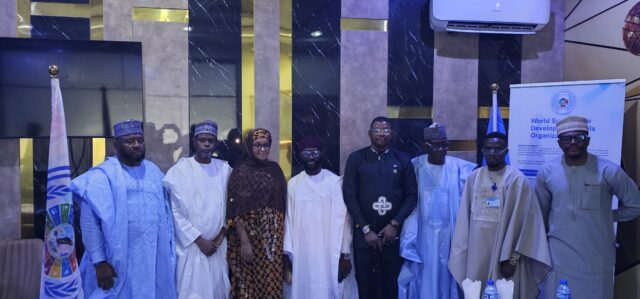The African Continental Governor of the World Sustainable Development Goals Organisation, Alhaji Yahaya Muhammad Guregi, has said that most insecurity challenges facing the continent are rooted in governance failures rather than conventional wars.
Speaking at the organisation’s official retreat on sustainable development in Nigeria, Guregi argued that about 70 percent of Africa’s insecurity problems could be traced to weak political leadership and poor governance structures.
“We are not fighting a conventional war in Africa.
“What we are facing is a crisis of knowledge and governance. If our elected leaders did the needful, we would not need to deploy the military against bandits or insurgents.”
Guregi noted that poor resource management and neglect of local communities had fuelled armed conflicts, especially in West Africa.
He added that better orientation and opportunities for citizens could help prevent young people from turning to violence.
The SDGs official stressed that insecurity in Nigeria and across the continent was worsened by corruption, inequality, and a failure to invest in human capital.
“If resources were channelled properly, insecurity would not dominate our national discussions,” he said.
The retreat also announced plans for an international conference on African security, bringing together regional actors and civil society to explore non-military solutions.
Guregi defended the role of non-governmental organisations (NGOs), rejecting claims that they worsen insecurity. Instead, he said NGOs were vital partners in filling governance gaps.
“The truth is, governments cannot do it alone. Even the most advanced countries rely heavily on NGOs to support communities. Our work is to complement the government, not compete with it.” he explained.
He added that civil society must “modernise the narrative” around NGOs to show their positive impact in development and peacebuilding.
In his keynote speech, Ambassador Aliyu Garba Abubakar, Director of the Climate Action Agency in West Africa, urged Nigeria and other African countries to harness innovation and clean energy as a pathway to peace and stability.
“Climate action is not a cost to development – it is an accelerator.
“The global shift to clean energy represents a trillion-dollar opportunity. Countries that position themselves as suppliers of green technology will capture enormous benefits,”Abubakar said.
He highlighted Nigeria’s abundant solar and wind resources, along with a growing technology sector, as opportunities to transform the economy and reduce poverty.
“We can become Africa’s clean energy powerhouse while achieving our development goals,” he added.
Abubakar warned that delays in implementing proven innovations and data-driven policies could cost Africa its future.
“What keeps me awake at night is not lack of knowledge – it is the speed and scale of implementation,” he said.
He called on government leaders to streamline bureaucracy, invest in digital infrastructure, and create regulatory sandboxes to allow innovation to flourish.
Abubakar also urged the private sector to think beyond profits and embrace long-term impact.
“The companies that solve Nigeria’s development challenges will build the largest, most sustainable customer bases,” he said.
In attendance were, the Executive Director, West Africa Region, H.E. Dr. Fubes Ade Danor, the Director Zero Hunger Agency West Africa, Alh. Faruq Umar, the Ag. Country Representative-Nigeria, H.E. Farila Sulaiman Ibrahim, amongst others




